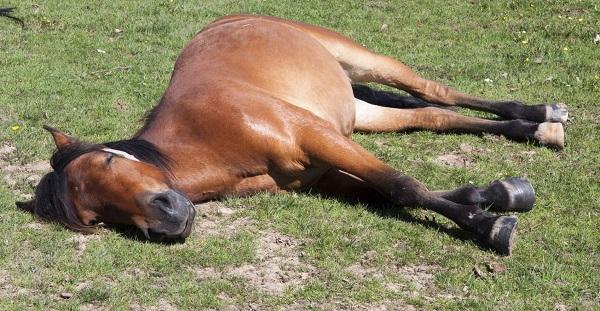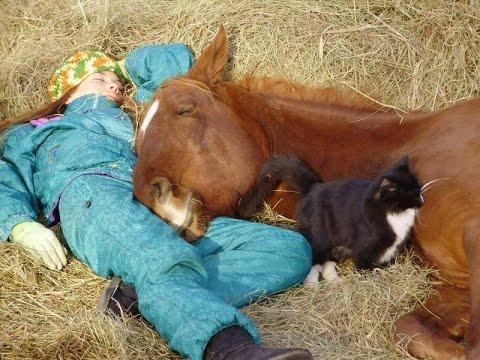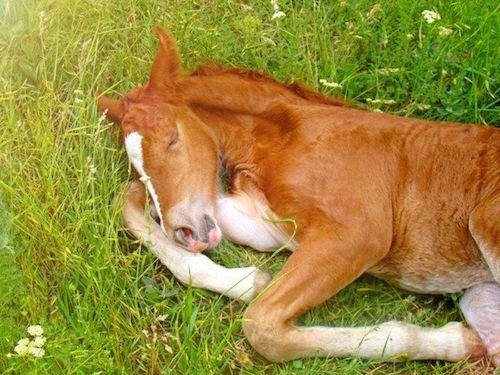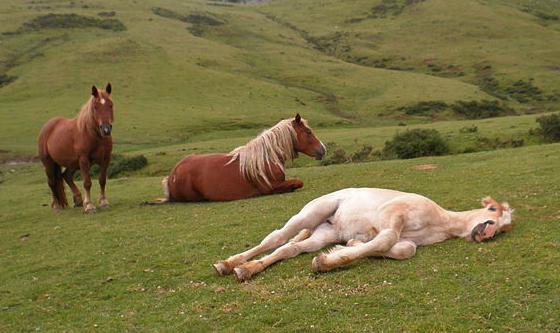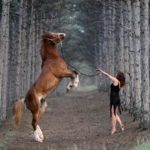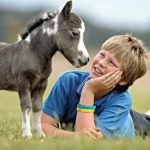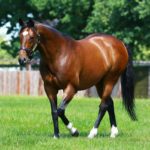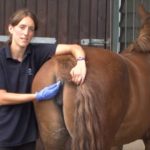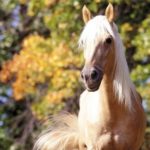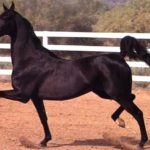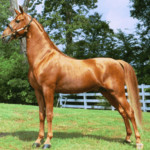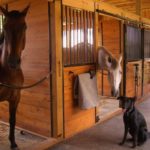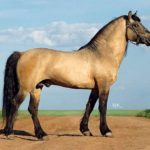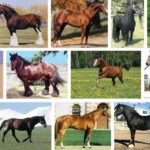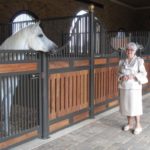As you know, the horse is one of the first animals domesticated by man. Carriages and carts have long since sunk into oblivion, but fast horses still enjoy the love and admiration of people. Many have seen what horses look like, but not everyone knows how these amazing creatures sleep. Keeping and training a horse is not an easy task. In order to achieve success in the field of horse riding, you need to study the habits and habits of these graceful animals.
- How horses sleep - let's look at the question from a scientific point of view
- On foot
- On the side
- Are your eyes open or closed?
- Napping - the main differences from sleep
- Do horses dream?
- How long should a horse sleep?
- Factors influencing sleep duration and quality
- We create optimal conditions for your pet to have a good rest
- Safety
- Music
- Company and comfort
How horses sleep - let's look at the question from a scientific point of view
To a person far from the intricacies of horse breeding, it may seem that horses always rest while standing. It's hard to believe that such a massive animal can lie down on the ground and then effortlessly rise to its feet.
Zoologists say that horse sleep can be divided into 2 important phases:
- fast (half-asleep and drowsiness);
- deep (sound sleep).
Depending on the stage of sleep, the horse can sleep standing or lying on its side.
On foot
At city festivities you can often find a horse standing peacefully waiting for a client. As a rule, the animal stands with its head down. The horse's back is arched at the waist, the muscles are relaxed, and the hind leg is slightly bent.
In this position the horse is half asleep. Such a dream is unsteady, the animal perfectly hears surrounding sounds and controls the situation.
The horse spends the lion's share of its time in a state of half-asleep. Thanks to the unique structure of the knee joints, the horse can rest in a standing position. The impressive weight of the horse is evenly distributed over all 4 limbs. Deep sleep is impossible in this position. The state of half-asleep can last no more than half an hour.
On the side
In a state of deep sleep, the horse lies on its side. The horse's neck and legs are extended, the tail and ears remain motionless. In a dream, a horse may make sounds, jerk its legs or head. At this time, the animal is completely defenseless. We can say that the horse is unconscious. It will take him a few minutes to come to his senses.
In the wild, horses sleeping soundly are guarded by their relatives. When signs of danger appear, the guards give a signal to escape. Under natural conditions, an adult horse rarely falls into deep sleep. There are too many dangers around.
In some cases, animals can go for several months without sound sleep. For example, a horse who occupies the place of leader in a herd cannot leave his post even for a short time. In an attempt to take the place of the leader, the young stallion tries to take advantage of his weakness. Foals feel the most at ease. Under their mother's supervision, they sleep as much as they want.
Are your eyes open or closed?
A horse sleeps with its eyes closed only in a state of deep sleep. In other cases, the animal's eyes are half open.
Napping - the main differences from sleep
In a state of drowsiness, the horse rests in a prone position. Her limbs are tucked under her own body, her muscles are relaxed, and her head is lowered to the ground. Shallow sleep helps the horse replenish lost strength. At the same time, the animal is in a state of “combat readiness” and is ready to take off at the slightest danger. The animal's ears constantly tremble. As highly sensitive antennas, they pick up any sounds. Hearing the alarm, the horse quickly straightens its front legs and jumps up.
Do horses dream?
During sound sleep, uncontrolled eye movements are clearly visible under the animal's closed eyelids. This is a sign that your pet is dreaming. Watching a sleeping horse, you can see how the lips and limbs of the horse tremble.
How long should a horse sleep?
In its natural habitat, a horse is busy playing, getting food and other important matters, so it sleeps from 6 to 8 hours a day. The state of complete immersion in sleep lasts no more than 3-4 hours. During the time allotted for rest, the animal manages to replenish its strength, periodically falling into a state of drowsiness or deep sleep.
In stable conditions, the pet remains at rest for much more time.Here the animal feels completely safe. The horse does not need to travel in search of food and remain on guard in anticipation of predators. Being in a state of idleness, the animal sleeps from 6 to 15 hours a day.
Factors influencing sleep duration and quality
Under natural conditions, a horse rarely enjoys deep sleep. The animal is forced to listen sensitively to suspicious sounds and smells. Deep and long sleep is possible only in conditions of complete safety, in the circle of one’s fellow humans.
If we are talking about stable keeping, it is necessary to note the main reasons for poor sleep in animals.
- Cramped room.
- Lack of fresh air.
- Loneliness.
- Hygiene violations.
We create optimal conditions for your pet to have a good rest
The quality of rest for the inhabitants of the stable depends on the conditions created for the animals by a responsible person.
Safety
First of all, you need to make sure that the floors in the stable are kept in order. Rotten boards can cause injury to the animal. Fractures and tendon sprains lead to serious consequences for the health of a frisky pet.
High-quality stable ventilation and regular cleaning of stalls will help preserve the health and life of the horse.
Often, due to poor sanitation, the room is simply poisoned by the smell of ammonia. The stench is especially acute at the bottom, at a level of 40-50 cm from the floor. For this reason, horses ignore deep sleep; they simply cannot lie in such an environment. Breeders know what troubles a horse’s “blockage” can bring. In this case, the animal is capable of being fixed in a lying position for a long time.Under its own weight, the horse will develop lung problems. In order to prevent blockages, the stall is equipped with special slopes.
Music
The quiet, melodic composition has a calming effect on pets and helps establish contact between people and animals. Most horses prefer classical music. Some compositions serve as an aid for practicing the trot in animals. Unfortunately, to please customers, unscrupulous stable owners play loud music. The hearing system of four-legged pets is much better developed than that of humans. Loud sounds have a negative impact on the mental state of animals. Horses become nervous, irritable and uncontrollable. In addition, extra decibels can provoke the horse has colic.
Company and comfort
Once alone, even a healthy horse can refuse deep, long sleep. The animal is stressed and does not feel safe. A horse needs constant communication with its brothers. Even when walking individually, a horse must see its own kind. Compliance with a walking regime and constant contact with relatives will bring the animal back to normal.
In order for your pet to feel comfortable, you need to place it in a spacious room. The area of the stall should allow the horse to lie down comfortably on its side and stretch its legs. The horse spends a lot of time indoors; it cannot live in close quarters.
Particular attention is paid to the lighting of the stables. Graceful animals should not be in the dark. The stable is designed so that there is at least 1 square meter per pet. m windows. The premises must be regularly ventilated.


